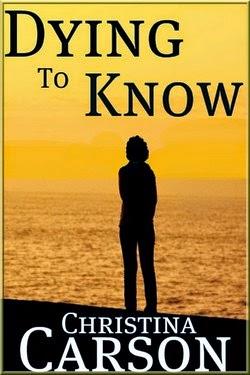Recently, I was invited to join a
touring group. No, we’re not singing and playing music. But we are sharing a bit about ourselves as
writers and then shamelessly promoting our writing. Our answering the four
questions below will give you some idea who we are as writers and why we pound
these silly keys over and over again. Hang on. Here we go.
What am I working
on?
Currently, I have just published
Book One: Where It Began, of the Accidents
of Birth trilogy and am now putting the finishing touches on Book Two: Where It Went and Book Three, Where It Ended. The trilogy deals with the conundrum that though
our biological lives take shape in the womb, the major influence determining
our fate is the happenstance of where and to whom we’re born. It follows the relationship
of Imogene Ware, an unschooled, quirky black housekeeper from a freed slave
enclave called Small Town, and Katie Gayle Sutton, a child prodigy in Mrs.
Imogene’s charge who lives in an abusive household, white and well-to-do, in
the rural Mississippi town of Ellensburg amid the politically and racially
charged last half of the 20th century. It was my first experience of writing in
dialectic and across racial lines.
How does my work
differ from others in my genre?
Placing my
work in a genre has always been a challenge for me. Since one’s choices are
limited to what are provided by the publisher, you have to fit into their view
of the world. Where I finally placed myself is in Literary fiction, not because
of my skill as a writer but because that genre allows for a greater variation
of themes and stories. Thus since this group represents a rather electric range
of topics and approaches, difference from each other is more by degree of
ability and cleverness of theme. Where I
might stand apart is in preferring first person point of view rather than the
more popular third person and wrapping my stories specifically around some
aspect of the human condition. My first novel, Suffer the Little Children, examined the question: What is it we do
that drives our children from us? My second, Dying to Know, attempts a new answer to the question: Is there
another way to understand health and well-being? And what I explored in the
trilogy is what unconditional love looks and acts like.
Why do I write
what I write?
I have spent
my entire adult life exploring the human condition. As a young person, I saw
something strange going on, which I just couldn't leave alone. What I saw was
that we live our lives saying one thing and acting out the exact opposite with
no awareness that is what we are doing. Thus began a lifelong interest in the
human condition and the “big questions:” who are we, what are we and why are we
here. So naturally my novels reflect, through the characters and stories, some
aspect of the human condition I want to explore further. I would like my work
to hold the reader in the story by what they can come to understand about
themselves through the struggles and triumphs of the characters.
How does my
writing process work?
It differs based on what I am
writing. The historical novel I’m I've been working on takes a more organized outline because of
having to stay true to dates, times and what was going on then. But in most of my
books, I have a sense of the story arc, where the character starts out and
where they need to end up. I have a title that catches the essence of the work.
Then I just let it flow the way the story would naturally unfold were the
character a real live person living out this set of circumstances. I can’t
stand outlines.
Thanks for
touring along with me. Now you will have the opportunity to see how other
writers I know create the works they do:
David Atkinson was
born in Sunderland UK and now lives in Yorkshire with a love for the Japanese
culture and especially haiku. He has six self-published novels and one volume
of poetry, and also cooks delicious sounding recipes. If you visit him ever,
make sure it’s around supper time!
Bert Carson is
an Alabama boy whom I love to pieces. And bless him, he offered to be one of my
“tags” for this tour. He has five published novels across several genres but
all with the underlying theme of doing the right thing. Thus his characters
become people the reader would love to emulate. A Vietnam vet, his stories are
usually touched by that experience directly or flavored by it indirectly. He
has much wisdom to share on war and life which his novels reflect.
Jim Ainsworth is a Texan through and through. He’s
contemplative about life and thoroughly enamored of the land and history of
Texas. An award-winning author, he’s written non-fiction, a memoir, and six
works of fiction. In his words, “I try
to figure out where we are going by connecting the past to the present and
future through writing novels.”
All are fine
writers and interesting people. Check them out.



.jpg)

